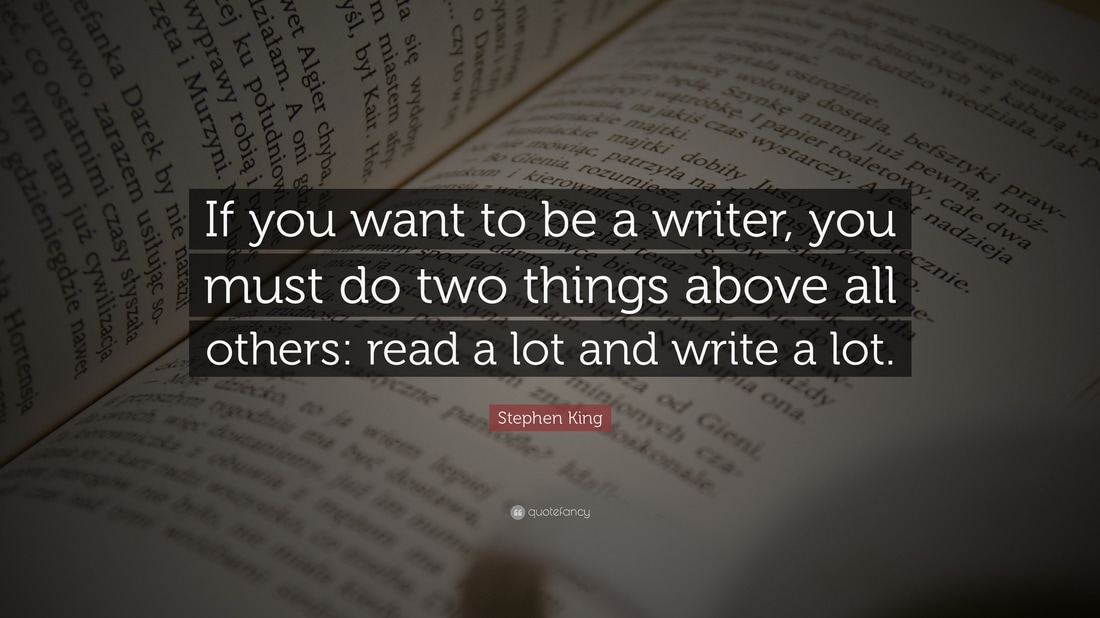On Writing, by Stephen King, had been sitting on my shelf for the past six years and I just recently finished it within a matter of days. I’ve always been skeptical of how-to books when it comes to creative writing because, thanks to my years in high school committed to the craft, I felt like I knew everything there is to know about writing a novel.
Well I was wrong.
On Writing has this no bullshit approach that I would have never received in any lesson plan. King elaborates on all key points behind literature – plot, grammar, themes, dialogue, narrative – without reiterating the same stuff you hear in any writing workshop. I didn’t want to be told to show versus tell. I didn’t want to be patronized for not having a theme. I also did not want to hear, for the hundredth millionth time, the importance behind plot points. Although Stephen King is one of my favorite authors, I was worried On Writing was going to read like most how-to books on literature: denser than a textbook.
On Writing made me feel confident about my own writing process. For the past two years, I’ve been working on a fiction novel. At first, I was nervous that King’s advice would provoke me to trash the whole idea. When I started On Writing, I was roughly 120 pages into my story and to be honest, I finally felt like an underlying theme was beginning to take form. That’s silly, right? I am over one hundred pages into this story and now I am noticing a theme after the main character has experienced roughly five personal transformations. I felt in the wrong until I came across this in On Writing:
“Good fiction always starts with STORY and progresses to THEME.”
Well Thank Goodness.
I was fond of King’s thoughts behind plot as well. I’ve maybe outlined a handful of pieces in my life and of course, I never follow them. I despise outlines. I despise confining my ideas on some timeline and feeling as if I have no say once the tables turn. King relates this point to our lives and questions why we must outline/plot our stories when plot is nowhere to be found in real life.
“Our lives are plotless!”
My favorite piece of advice he offered modernizes the agonizing, “show, don’t tell.” His approach to this phrase that can be found on the first page of ANY Writing Workshop packet (don’t believe me? Sign up for a Writing Workshop and skim over the materials they give you. Don’t worry, I’ll wait), applies not only to healthy writing but healthy living:
“If I have to TELL you, I LOSE.”
Hallelujah!
As a writer, if I have to tell you what’s happening, how a character is feeling, the theme, the scene, I lose all credibility. A reader should be able to skim through a piece of work and have good understanding of the WHO, WHERE, WHAT and WHEN. The WHY comes later. “If I have to tell you, I lose,” reminds me of another piece of advice I use frequently: Actions speak louder than words.
Someone could tell you he or she loves you, but his or her actions could be contradicting. How can you believe someone they love you if they are dishonest, steal from you or hurt those around you?
Don’t be with a person whose apologies feel like déjà vu.
Words are nice, but Actions are better.
I recommend this book to anyone wanting to start a novel or is currently working on a novel and needs that extra boost of confidence to start or finish! Whatever textbook you are referring to, put it down and pick up On Writing. If you feel like what you are working on is crazy, it’s most likely crazy good, and King’s advice will entice you to love what you are working on even on the days you don’t want to open the document.
Thank you, Stephen King, for telling it how it is. Being amidst this kind of creative process is one of the most uncomfortable feelings, but kudos to you, I don’t mind it one bit.

